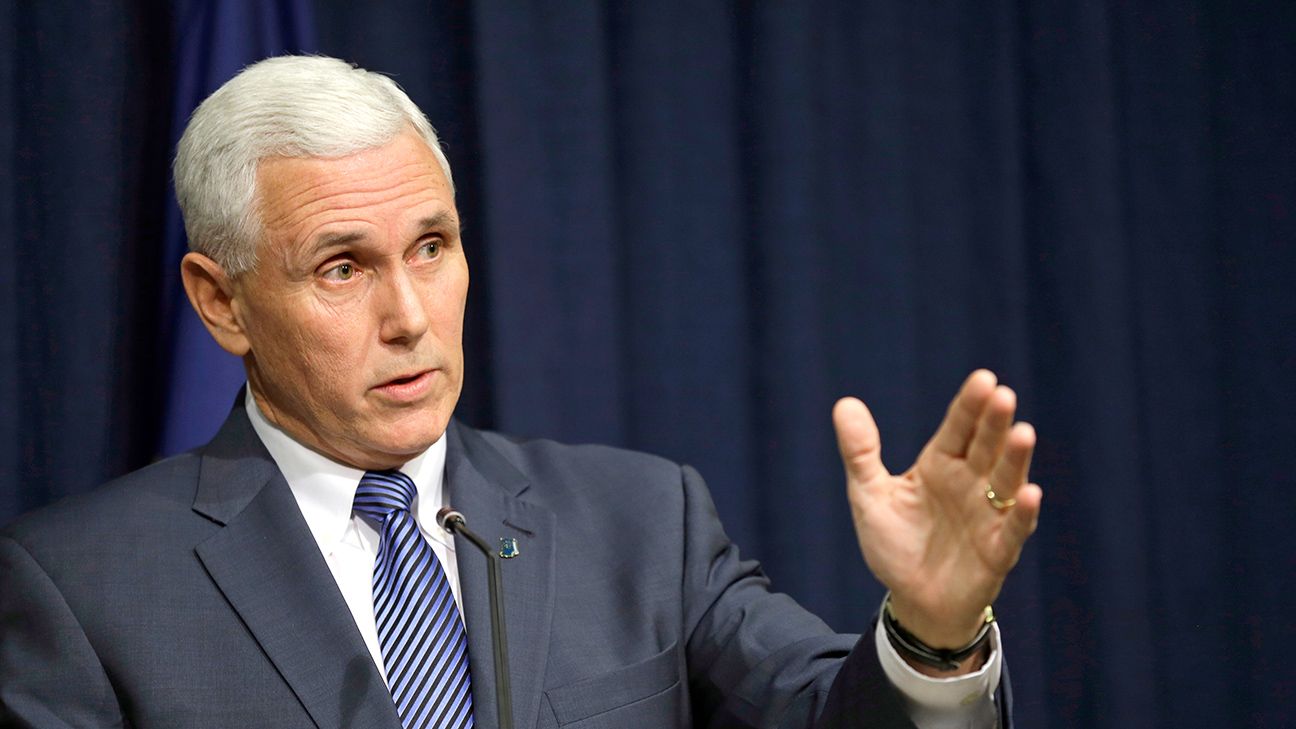Vice President Mike Pence spoke to the College Football Playoff management committee in a teleconference on Wednesday morning about the impact of the coronavirus pandemic on college athletics, CFP executive director Bill Hancock told ESPN.
The committee, which is comprised of the 10 FBS commissioners and Notre Dame athletic director Jack Swarbrick, told Pence about how different the college athletic landscape is than the professionals, emphasizing that the biggest difference is the closure of campuses across the country.
“I don’t know if he quite understood the level of how different it is,” Hancock said. “Colleges can’t quarantine athletes in the same ways pro teams might be able to because they’re going to class, they’re going to the dining hall, they’re walking around campus. We’re just different.”
Swarbrick called it a “pretty productive call.”
“It was a great opportunity to collectively share insights,” Swarbrick said. “I want to be clear, I don’t think we offered any insights they didn’t already understand or appreciate, but a lot of the discussion was about the unique nature of college athletics being first and foremost the question we face is whether our universities will reopen and when. We’re never in a position to look at these issues purely through an athletic lens. There is no athletic calculus to engage in if our campuses aren’t reopened.”
At Notre Dame, classes will continue to be online through at least the first half of summer school. There has been no timetable for when college sports might return.
According to Hancock, Dr. Anthony Fauci, the nation’s leading epidemiologist, was not on the call. Those who did participate didn’t discuss any potential financial implications, or get into any scenarios for returning to practices or when the college football season might start.
“As you might expect, the vice president talked about getting the country back on its feet as soon as possible, but he does recognize the need to protect the safety of the athletes,” Hancock said. “He understands that the decision, any decision, would be guided by the medical people and others. That was clear.”
Hancock said the group didn’t discuss testing availability for players and coaches, or the possibility of playing in empty stadiums.
“We welcomed the opportunity to give some insight into our world,” Hancock said. “It showed the White House understands how significant college athletics is to people in this country. He was gracious, a good listener, and I think he was glad to hear our thoughts.”
Hancock said there weren’t more calls scheduled with White House administration, but that could change.
Swarbrick agreed there is value in it.
“I think there’s huge value in having a dialogue, just sharing perspectives,” Swarbrick said. “It’s not that there’s anything in it that’s revelatory. It’s great to be sharing information and talking.”
